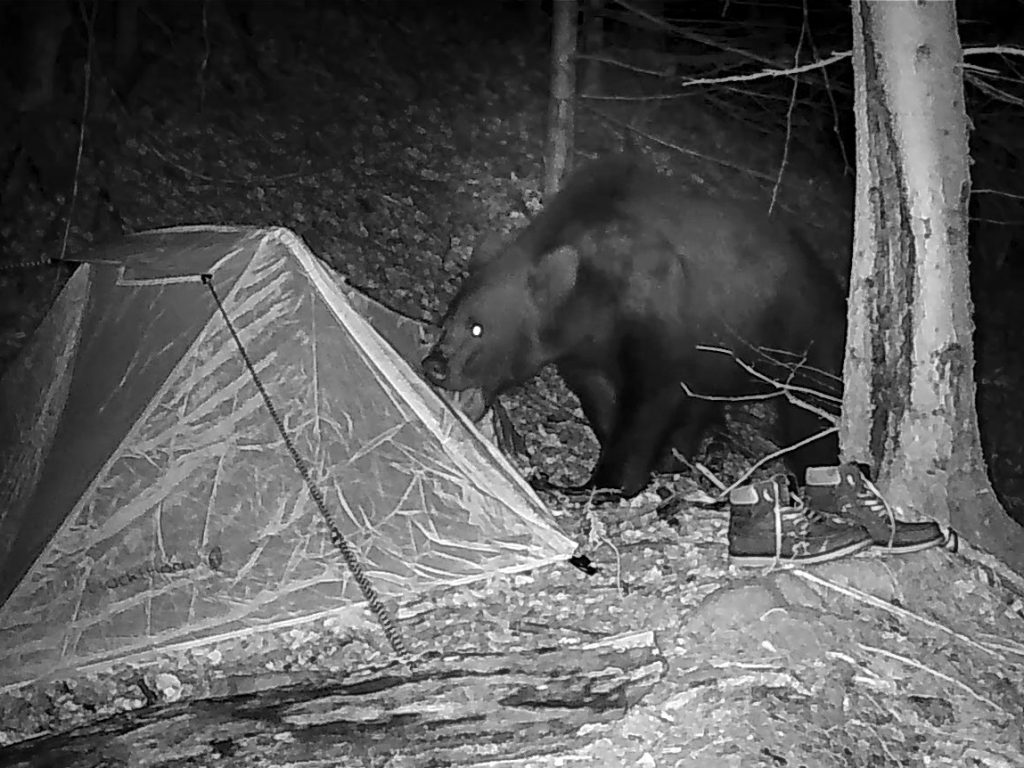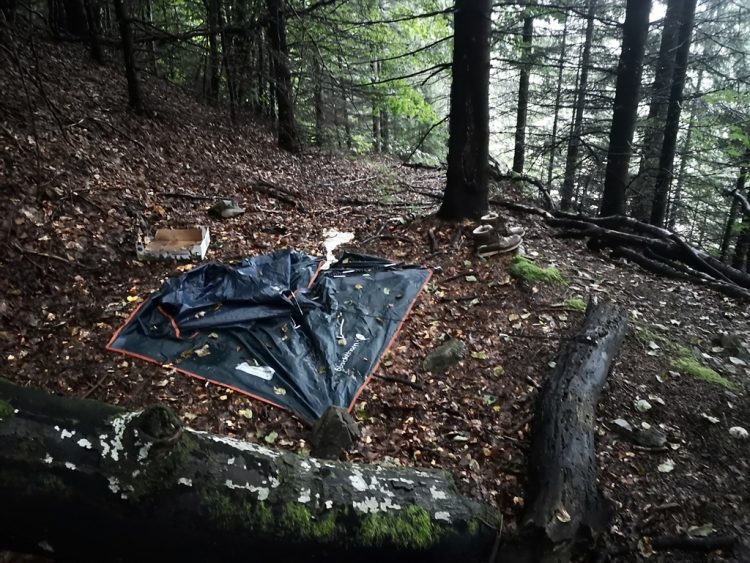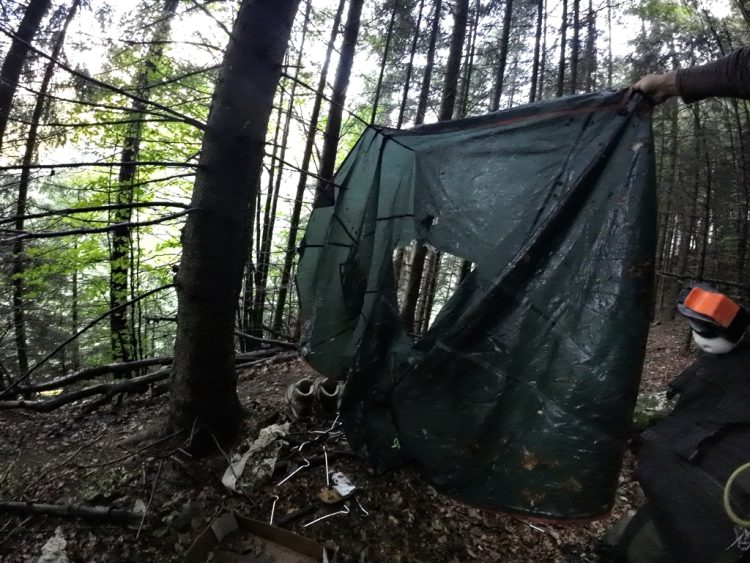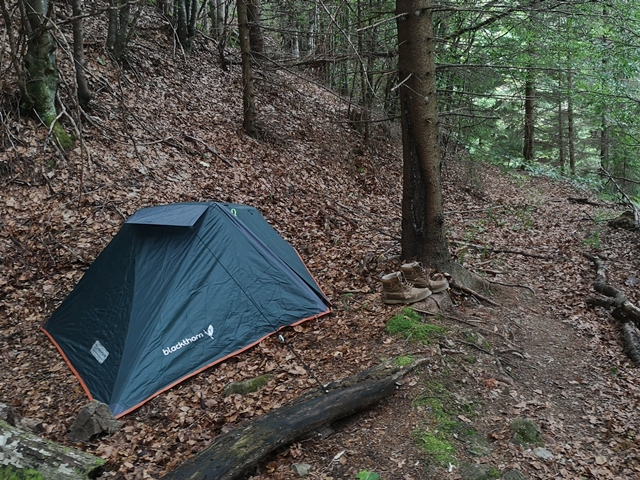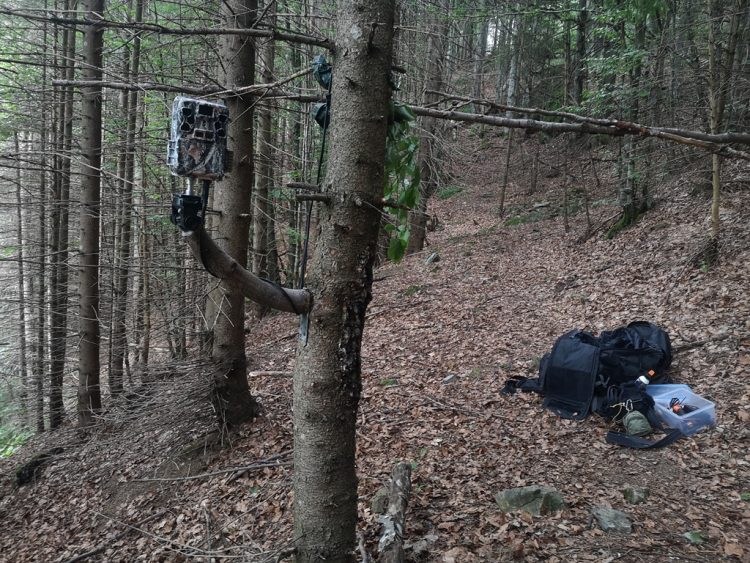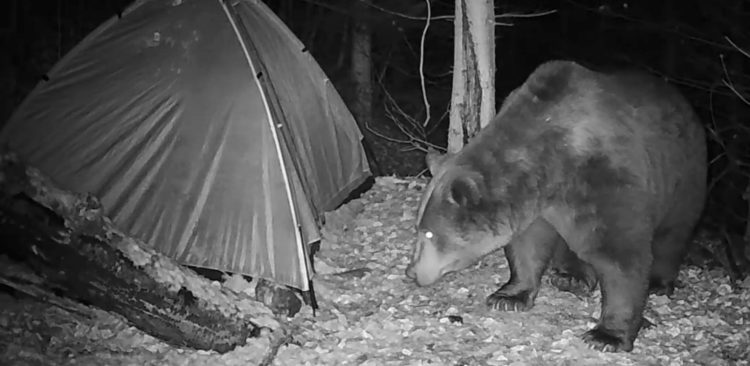Therefore, do not store poorly packaged food in the tent! Or better yet, place it in a hermetically sealed bag/box a few meters away from the tent. Read this article to learn about the consequences of the smell of food from the tent. Video and photos are included.
In the Romanian Carpathians, I was interested to see how bears react to the smell of food from the tent – which, unfortunately, is often the case among tourists.
I used [smell] instead of food, i.e. I simply poured fish oil on the old stuff and put it inside the tent because I didn’t want to provoke the bear when it entered the tent, and therefore didn’t want the bear to associate the tent with food – or access to food. I specifically made sure that the bear did not associate the tent with a positive, but rather with a neutral or even negative (for example, perceived as disappointment) experience.
This method can help the bear not associate the tent with the opportunity to get food.

There was a wildlife camera set up next to my tent that recorded everything that happened for 5 minutes from the moment the bear appeared until it left.
The experiment ended with a torn tent. And what’s interesting is that the smell of a person (in this case, worn boots) still scares off bears. Only one ignored it and went on to dig up the supposed food in the tent.
In 2024, I began a special experiment in the Romanian Carpathians. I was interested in how brown bears react to the presence of a person, or at least to their obvious traces. In the first part of my observations, I left an empty tent in the mountains, next to a secluded but well-trodden bear trail.
There was nothing special in the tent: no food, no human scent, no movement, no distractions. It just stood there, as if in nature, as an unfamiliar object to them. The wildlife camera recorded the bears approaching her cautiously, but curiously. They weren’t afraid of her, but they didn’t go inside either. They acted as if it was just a new rock or fallen tree in their path.
However, by July 2025, it was time to make the experiment a little more exciting.The second part of the experiment is now beginning, this time not only the type of tent, but also the smells inside it matter. I doused some old clothes with fish oil and put them in the tent.
Anyone familiar with this smell, knows: it doesn’t need a special invitation, it beckons even from afar, especially for an animal with such a sensitive sense of smell as a bear.But I wasn’t just checking the smell of fish. I also found an old hiking boot, and even though it hadn’t been worn for a long time, I [made sure] that it was re-saturated with human scent ;). The goal was to create the feeling that someone had recently been here, or was perhaps still sleeping inside the tent.
The purpose of the experiment:
- Will the bears’ behavior indicate that the smell of food is spreading from the tent?
- Will their curiosity be stronger than their caution associated with the presence of human?
- Will they come into the tent?
- Will the boots scare them away or attract them?
It is important to note that the experiment is completely harmless and designed with environmental protection in mind.
There is no real food in the tent, only traces of smells – for example, fish oil, which serves as an olfactory stimulus, but there is no edible snack. Even if the animal enters the tent, it does not receive any food.
So the goal is not to shape or influence the bear’s behavior, but to observe instinctive reactions. What does the animal do in a situation where there are traces of human presence and smells reminiscent of food, but no actual food?
This prevents the bear from associating the presence of the tent or a person with food, which is key to preventing a possible attack by the bear.
This is not only interesting for wildlife photographers, but can also be useful as a good experience for tourists. If we better understand what attracts bears and what they fear, it will be easier for us to avoid conflicts between people and bears in the wild.
Material prepared by: alp.org.ua
Source: percsichtamas.hu

